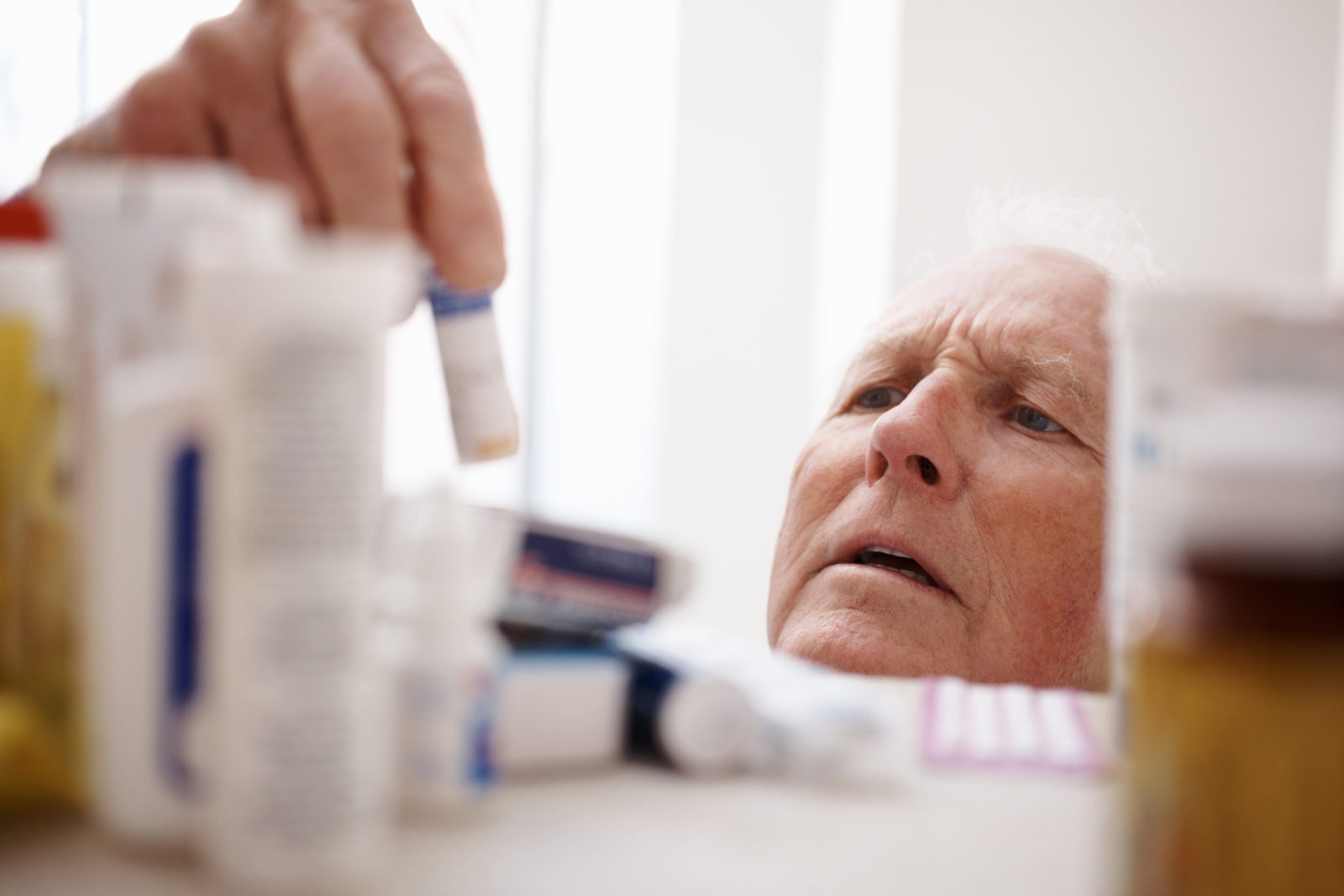Adverse Reactions from Medications Are on the Rise

As we age, the more likely we are to be taking multiple medications. While this may seem intuitive, that number of medications seniors are taking may surprise you. More than a third of Americans over the age of 65 take at least five prescription medications, a scenario described as polypharmacy. The typical 75-year-old takes more than 10 prescription drugs. And while these drugs have helped save lives and improve the health and well-being of millions of people, polypharmacy can have life-threatening side effects.
How big is the problem?
More than 1 million reports of drug side effects were filed with the Food and Drug Administration in 2015, a fivefold increase since 2004. According to the Centers for Disease Control and Prevention (CDC), those over the age of 65 are twice as likely to go to the ER for adverse drug events than the population at large, with more than 177,000 emergency visits each year. Seniors are seven times more likely to be hospitalized after an emergency visit. Overmedication of seniors has been linked to falls, kidney failure and even heart attacks as well as misdiagnoses for conditions from depression to dementia. One-third of prescription-related deaths are of elderly persons. In one study, researchers discovered that approximately one in five prescriptions written for elderly patients was inappropriate.
What causes the problem?
There are many reasons why polypharmacy happens. Here are some of the major reasons.
- Multiple health problems
One of the reasons that polypharmacy is so common is that seniors often have different doctors treating multiple health problems. They see a cardiologist for their heart issues, a gastroenterologist for digestive problems, a neurologist for Alzheimer’s disease or stroke recovery, an oncologist for their cancer concerns, and the list goes on and on. The problem is that these specialists generally don’t communicate with each other and the senior patient often forgets to communicate to each physician what medications they’re taking.
- “Better safe than sorry”
Part of the problem may also lie in the fact that many doctors take the “better safe than sorry” approach when prescribing medications. For instance, statin drugs – used to treat high cholesterol – are one of the most-prescribed drugs in the U.S., and seniors are likely targets for the medication. The rate of statin use among people age 80 and older – who have no history of heart disease or stroke – increased four times from 1999 through 2012, according to two researchers from Ohio State University and the University of Alberta, making the elderly the highest users of statins in the U.S. The problem here is that for patients this old, there is little to no research demonstrating that the benefits outweigh the risks, which can including muscle pain, liver damage and an increased risk of developing diabetes.
- Side effect or new symptom?
Adding to the problem is the fact that doctors often treat a new symptom with another drug instead of seeing the symptom for what it is – an adverse reaction to a current drug. Doctors will frequently see the adverse reaction as a new disease instead of a side effect and prescribe a new medication to handle the new symptom, increasing the possibility of adverse reactions to a drug that isn’t needed. Dr. Michael W. Rich, a cardiology professor at Washington University says, “The likelihood of an adverse reaction for someone taking more than 10 prescription drugs is nearly 100 percent.”
Protect yourself
Before any appointment with a medical professional, you should make a list of all the medications and dosage directions – including over-the-counter ones – you or a loved one is taking. Show the list to your doctor and ask specifically about contraindications with other medications. Make sure all the dosages are still appropriate. If you don’t know what a particular medication is for, ask! Whenever your doctor prescribes a new drug, ask what it’s for and if you really need it. Get educated on all the possible side effects of any medication you’re taking. If your doctor gives you a medication for high blood pressure and high blood pressure is a side effect of another medication, point this out and get the right combination of drugs that will best suit your specific situation.
Finally, be an advocate for yourself. You are the best person to know what’s in your own best interest. Don’t be afraid to ask questions. If a medication is making you sick, ask your doctor for an alternative therapy or treatment. If you could use some assistance in having someone coordinate your medical care needs, including assessing the prescription drugs you take, our care management services can help.
![PATHWAYS Care Solutions, LLC [logo]](https://www.pathwayscaresolutions.com/wp-content/uploads/sites/207/2016/10/logo-new-oct4.jpg)
![PATHWAYS Care Solutions, LLC [logo]](https://www.pathwayscaresolutions.com/wp-content/uploads/sites/207/2016/08/new-logo.png)